In the world of interior design, a captivating trend has emerged, captivating the senses and transforming spaces into havens of tranquility and elegance – the indoor waterfall wall. As urban dwellers increasingly seek innovative ways to infuse their homes and businesses with a touch of nature, these mesmerizing water features have surged in popularity, becoming symbolic statements of modern luxury. In this article, we will evaluate the Indoor Waterfall Wall Cost Ideas below.
Picture this: the gentle cascade of water against a backdrop of sleek materials, the soft glow of ambient lighting creating a serene atmosphere. Indoor waterfall walls are more than just decorative additions, they are immersive experiences that marry the elements of water and design, elevating the ambiance of any room to a whole new level.
Understand Indoor Waterfall Walls
Indoor waterfall walls, with their enchanting blend of design and nature, come in a diverse collection of materials and customizable options, allowing for a seamless integration into a myriad of spaces.
Types of Materials: Indoor waterfall walls can be crafted from various materials, each contributing its unique charm to the overall aesthetic. Acrylic waterfall walls exude modernity, offering transparency and a sense of lightness. Glass waterfall walls, on the other hand, bring a touch of sophistication, reflecting light and creating mesmerizing visual effects. Stone waterfall walls evoke a more rustic and organic feel, providing a tactile and earthy experience. Each material not only serves an aesthetic purpose but also influences factors such as durability, maintenance, and cost.
Customizable Options: One of the remarkable aspects of indoor waterfall walls is their adaptability to diverse preferences and spatial constraints.
Size: Whether adorning a cozy corner or gracing a grand foyer, indoor waterfall walls can be customized to fit any size requirement. From compact designs that complement intimate spaces to expansive installations that make a bold statement, size becomes a pivotal factor in tailoring the feature to the dimensions of the surroundings.
Shape: The versatility of indoor waterfall walls extends to their shapes. Curved, linear, or even abstract, the design possibilities are limitless. The choice of shape can evoke specific moods or complement existing architectural elements, ensuring a harmonious integration with the overall design scheme.
Design Elements: The beauty of indoor waterfall walls lies in the details. From textured surfaces to integrated lighting, the design elements can be tailored to align with the ambiance and theme of the space. Cascading water can be accompanied by ambient lighting, creating a mesmerizing interplay of light and liquid.
Understanding these variations in materials and customizable options empowers individuals to select an indoor waterfall wall that not only resonates with their aesthetic preferences but also harmonizes seamlessly with the unique characteristics of their living or working environment. The adaptability of these features is a testament to the versatility and personalized nature of indoor waterfall walls in contemporary interior design.
Factors Influencing Cost
Materials: The selection of materials stands as a cornerstone in the cost equation of indoor waterfall walls. Understanding the nuances of different materials is crucial for both aesthetic satisfaction and financial planning. Acrylic, with its affordability and versatility, often serves as a budget-friendly option, while the sleek elegance of glass may come at a higher price point. Those opting for the natural charm of stone should be prepared for a mid to high-range investment. The choice of material not only influences the visual appeal but also determines the durability and longevity of the indoor waterfall wall, making it a pivotal factor in cost considerations.
Size and Complexity: The size and intricacy of the design wield considerable influence over the overall cost of an indoor waterfall wall. Larger dimensions necessitate more materials and increased labor, contributing to a higher expense. Similarly, the complexity of the design, whether it involves unique shapes, curves, or intricate patterns, adds to the level of craftsmanship required. As complexity increases, so does the investment. Therefore, a delicate balance between desired size and design intricacy must be struck to ensure that the final result aligns with both aesthetic aspirations and budget constraints.
Installation: The installation process is a critical phase where the envisioned indoor waterfall wall takes tangible form. Professional installation not only ensures a seamless integration but also addresses the technical aspects of plumbing, electrical components, and structural considerations. Labor costs are a significant component of the overall investment, with skilled professionals ensuring precision and safety. Also, any need for structural modifications, such as reinforced walls or floor supports, introduces an extra layer of cost. As such, comprehending the intricacies of the installation process is essential for accurate cost projections and a successful realization of the indoor waterfall wall vision.
Frequently Asked Questions
The main materials used in indoor waterfall walls are acrylic, glass, and stone. Acrylic is budget-friendly and versatile, glass adds elegance but comes at a higher cost, while stone provides a natural charm within a mid to high price range. The choice of material significantly influences both the aesthetics and cost of the indoor waterfall wall.
Yes, indoor waterfall walls can be customized in terms of size, shape, and design. Customization directly impacts the overall cost as larger sizes and intricate designs require more materials and labor, contributing to a higher expense.
Cost variations arise from the inherent characteristics of each material. Acrylic is more affordable and lightweight, glass adds an element of sophistication at a higher cost, and stone, being natural and durable, falls within a mid to high price range.
There is no fixed ideal size, as it depends on individual preferences and spatial constraints. However, larger sizes require more materials and labor, influencing the overall budget.
Maintenance considerations vary with materials. Acrylic and glass are relatively easy to maintain, while stone may require more care. Maintenance can impact the long-term cost of ownership, so it’s essential to consider these factors.
Warranties vary, but many indoor waterfall walls come with some form of warranty. Considering warranty coverage is important for long-term cost considerations, providing assurance against potential issues.
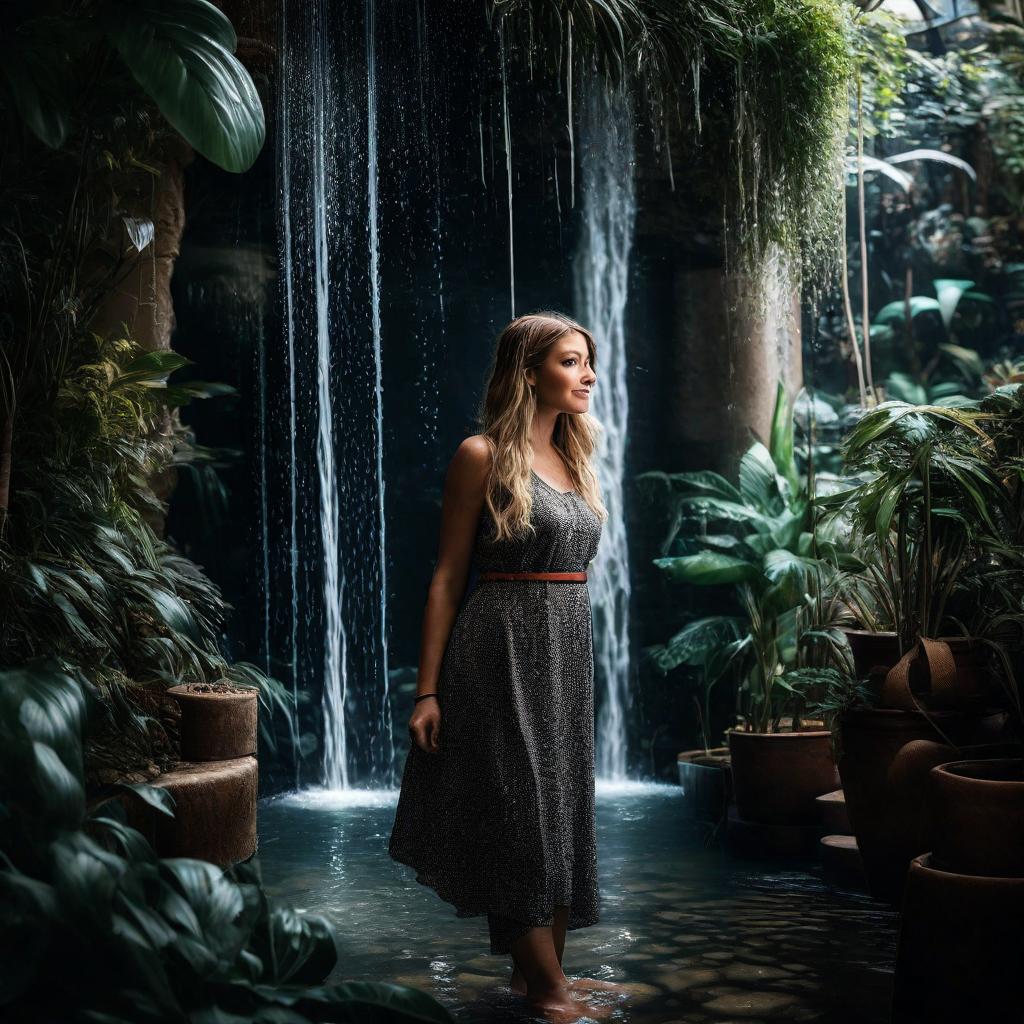
With a deep appreciation for the soothing allure of indoor water features, i share expertise in crafting, maintaining, and personalizing waterfalls for homes and spaces. Join the journey to transform spaces into serene havens.

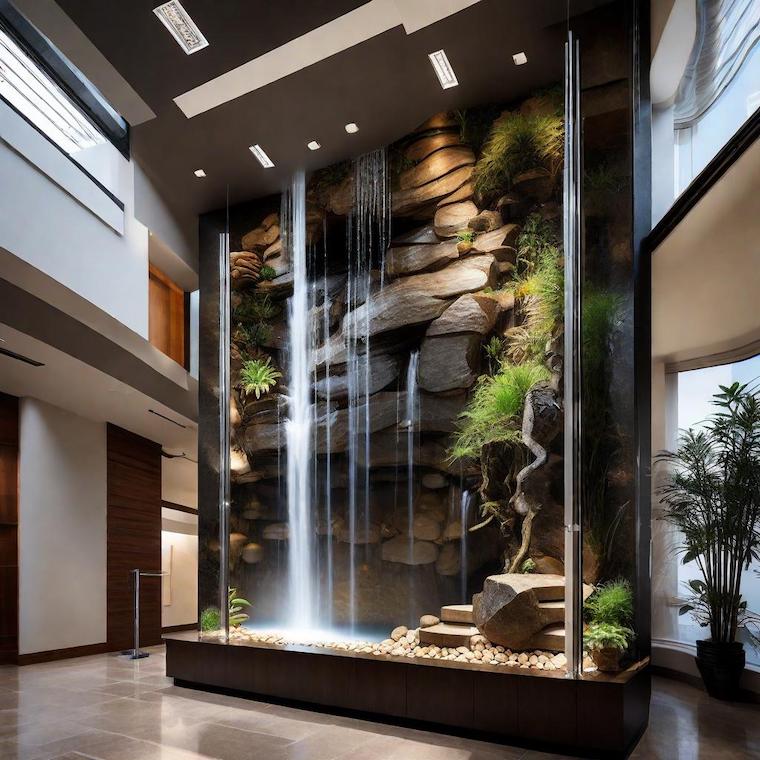
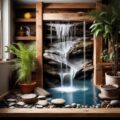
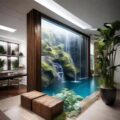
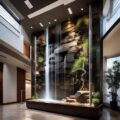
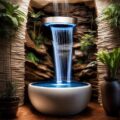
Leave a Reply